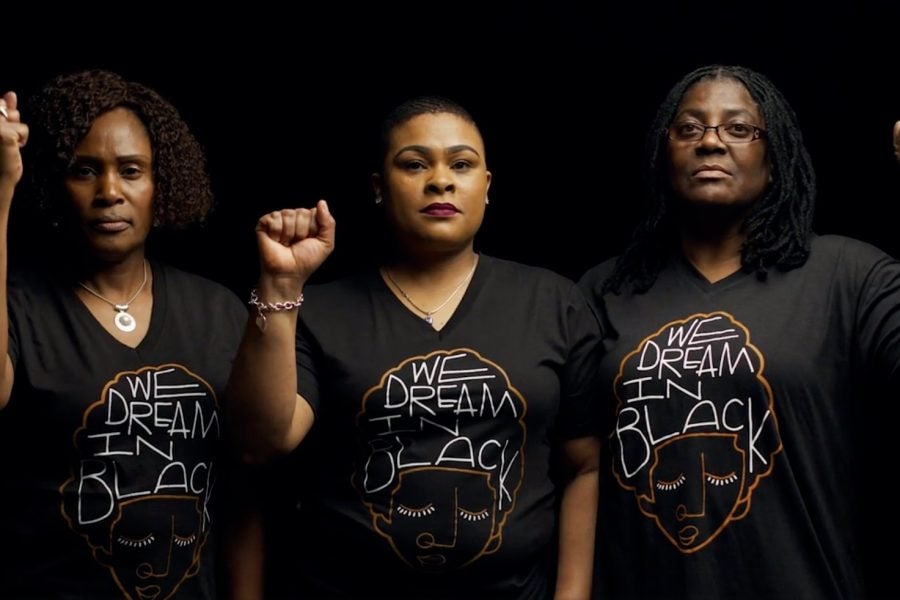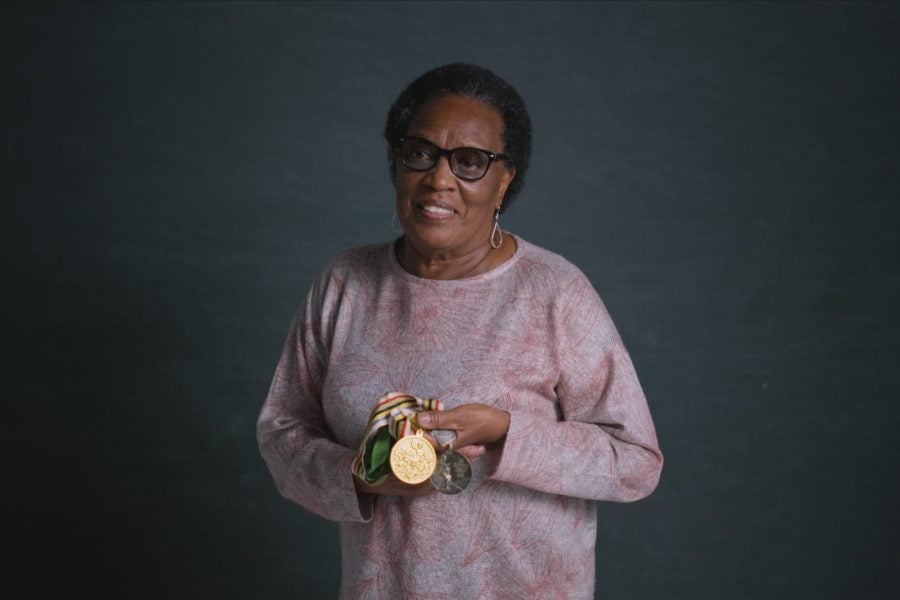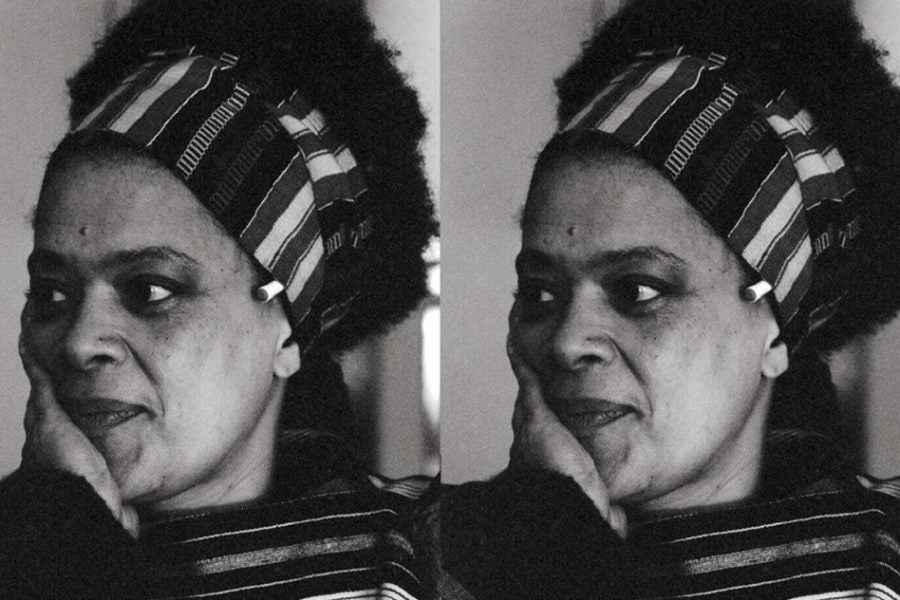
Lydia N* has been a homecare worker in Massachusetts, where she takes care of others and assists them in their daily routines. It’s a job that she loves and has done for almost 14 years.
When the coronavirus pandemic caused a global shutdown, Lydia went from caring for others to wondering how she would be able to take care of herself or her family if she got sick on the job due to the virus.
“As a domestic worker, I don’t have a lot of the things that other workers may have. I don’t have health insurance because of my status. I can’t afford to get sick. I don’t’ have many of those protections… it’s a common thing, specifically if you’re undocumented,” she told ESSENCE. “Even those who are documented, they often don’t have health insurance, sick days, or time off, but we all need those things,” she added.
She doesn’t get paid time off either and often had to supply her own personal protective equipment (PPE) when caring for elderly patients at the height of the COVID-19 outbreak.
As an undocumented immigrant from Uganda, Lydia couldn’t apply for any form of government assistance even when she lost her job and was without work for close to a year. These issues she’s faced as a domestic worker didn’t begin with the pandemic and go far beyond it.
Even before the pandemic, most domestic workers had no healthcare or other benefits. They were largely not protected by workplace laws, and the most vulnerable among them – Black immigrant domestic workers – were often unable to access resources being offered to help individuals and families survive a job loss, illness, potential eviction and hunger.
Lydia is just one of over 2.2 million domestic workers across the country whose roles as personal caregivers, nannies and housecleaners/ housekeepers are vital to the economy. This industry is disproportionately made up of women of color and immigrants. Their jobs help make work possible for people who must work away from home.
However, the challenges Black domestic workers have faced as essential workers both before and during the pandemic have often gone unnoticed.
“Our work is not valued and a lot of us, including undocumented immigrants, are doing jobs that are making other people’s work easier. But during the pandemic, we were the ones who had the most struggles,” she said.
A new report by The National Domestic Workers Alliance’s (NWDA), We Dream In Black program and The Institute for Policy Studies (IPS) looks at how one year of COVID-19 has impacted Black domestic workers like Lydia, who were some of the hardest hit by the pandemic.
“Something we often say is you can really get a pulse on the workforce when you look at domestic workers,” NDWA Executive Director, Jen Stowe told ESSENCE.
“I think because we know the way that marginalization in this country works, we know how oppression works and the intersections of oppression, it makes total sense to look at Black immigrant domestic workers in order to really get a lay of the land on the lack of care infrastructure that we have in the country, especially in the last two years.”
Article continues after video.
The Other Side of the Storm: What Do Black Immigrant Domestic Workers in the Time of COVID-19 Teach Us About Building a Resilient Care Infrastructure is a follow-up to a 2020 report. That report, Notes from the Storm: Black Immigrant Domestic Workers in the Time of -COVID-19 surveyed over 800 workers in Massachusetts, Miami-Dade, Florida, and New York City who shared their experiences dealing with issues such as housing insecurity, a high rate of job loss and safety vulnerability due to a lack of healthcare, PPE and worker protections typically afforded to other essential care workers.
In 2021, IPS and NWDA returned to the same pool of workers in the same three regional areas. Over 1,000 workers responded, resulting in a critical data report.
That report shared exclusively with ESSENCE revealed that Black immigrant domestic workers who were already vulnerable pre-pandemic due to their intersectional identities as Black, immigrant women, who in some cases are undocumented faced even greater vulnerability to exploitation, wage theft, and a lack of safety in dangerous circumstances.
The pandemic only exacerbated these issues. Forty-one percent of domestic workers reported that COVID-19 led to fewer work hours, which is up 25 percent from 2020. The majority of those surveyed said that they did not receive benefits from their employers, such as paid time off or paid medical or health insurance.
Other major concerns for domestic workers included whether they would face housing insecurity or disruption in necessities like utility services due to job instability. When first interviewed in 2020, 65 percent said they were fearful about eviction or loss of utility services. In 2021, 41 percent shared that they were forced to relocate, faced eviction, or had their utility services disrupted because they were unable to pay rent or other bills during the pandemic.
Overall, 68 percent of domestic workers are in roles in which they do not have an employment contract. These staggering statistics are why advocates say there is a major need for change in order to provide domestic workers with the support and protection they need.
“We need laws, we need a safety net. We do the work that makes all other work possible…we are the threads that weave society together, so we deserve these protections,” said June Barrett, a homecare worker in Miami and a leader of NDWA’s We Dream in Black Project.
Barrett, a Jamaican immigrant who identifies as queer has been a domestic worker for decades and says these basic protections should exist but don’t because the industry is like a “free for all” with not much regulation and they want that to change.
“We are hoping that with this survey, folks will see the need on every level possible, whether they are going to be funding our campaign, or they’re going to be becoming strong allies, we need that help and need support,” they said.
The National Domestic Workers Alliance is calling on Congress to act by investing in childcare and Medicaid’s home and community-based services (HCBS), which would raise wages and standards for home care workers and to also create a path to citizenship for those workers who are undocumented.
The organization has successfully passed a Domestic Worker Bills of Rights in ten states and two cities. With crucial data from this new report, it is also calling on Congress to pass a National Domestic Workers Bill Of Rights in order to increase protections and raise standards for workers across the country.
“I’m almost sixty years old and I would like to pass this baton, you know to the new generation of nannies, house cleaners, caregivers because we’ll always have people, workers like myself in societies. We are vital and our voices should be heard,” said Barrett.
Editor’s Note: In sharing Lydia’s story we did not use her last name in order to protect her privacy as an undocumented worker.







